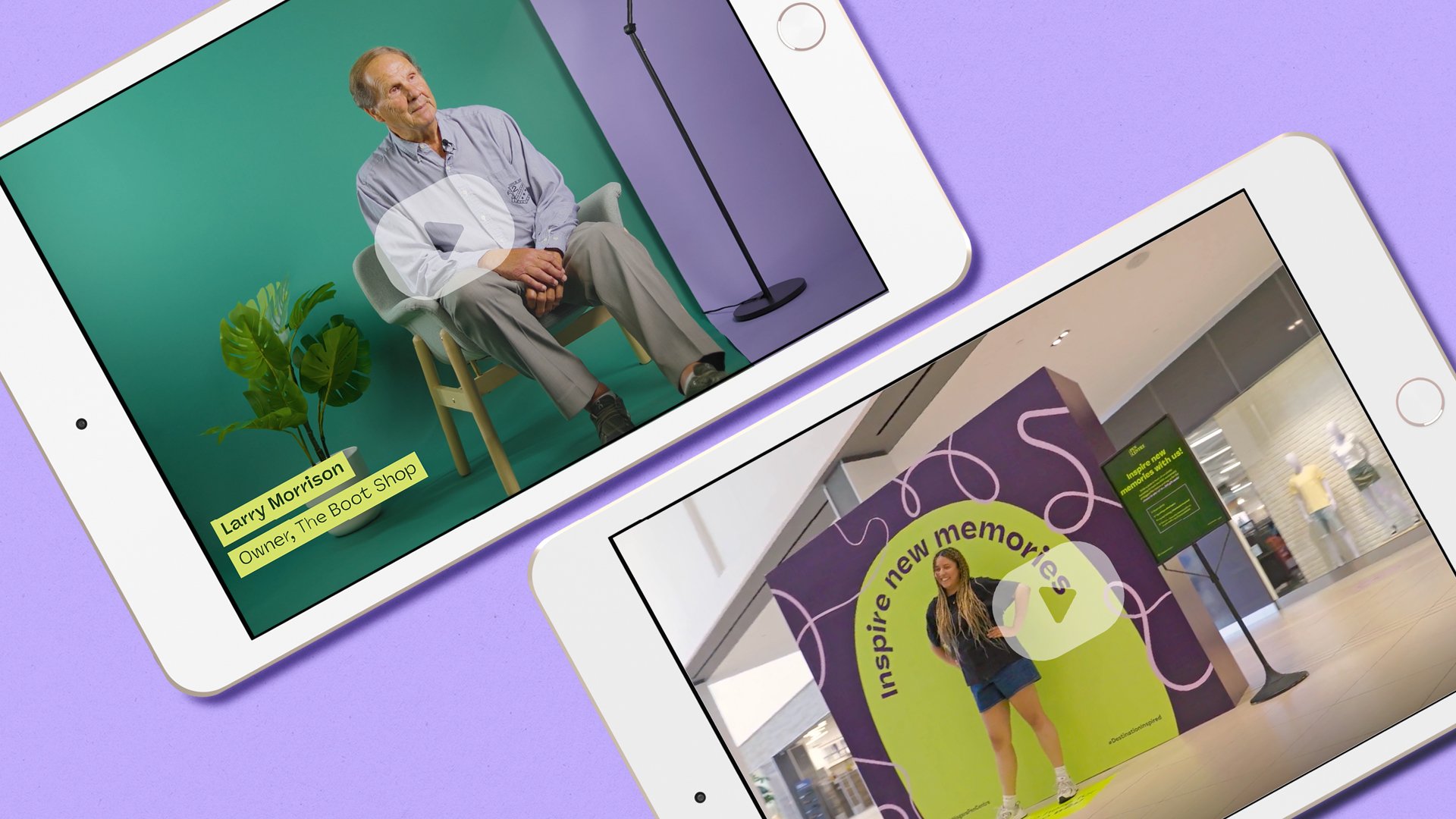
The Direct Support Profession (DSP) offers the opportunity to support someone with a disability to live the life they want at work, at home, and in the community.
It can be challenging at times, and it doesn’t pay much more than typical entry-level wages—but for many who have joined the profession, it’s more rewarding than they could have ever imagined. It doesn’t look like the typical entry-level career, and for many—the unexpected benefits, opportunities for growth, and meaningful connections make it extraordinary.
For this campaign, our client, Abilities Manitoba, drew government support and funding to develop an industry-wide recruitment campaign for the Direct Support Profession. Each of the nearly 100 organizations that hire and recruit Direct Support Professionals in Manitoba needed to feel represented by the recruitment brand and strategy—and there was urgency, with most struggling to attract and retain staff. We needed to get people interested in the field, recruit suitable candidates, and compel more people to apply to their partner organizations for work.
Let’s Grow To Work
To get people interested in the Direct Support Profession and attract suitable applicants, we needed to understand why current DSPs love the position. We interviewed current employees in Manitoba and the people they support, encouraging each pair to share their stories, insights, advice, and how their personal connections and virtues of this work have enhanced their lives. We also accompanied them on activities they’d typically do on a regular day together, like playing basketball, preparing meals, or visiting an outdoor market to capture the wide array of tasks required of a DSP. The result was the Direct Support Profession Manitoba brand, with the recruitment tagline “Let’s Grow to Work,” emphasizing the ways both the DSP and person they support grow in their work together.
To complement all of the values of this position and industry brand, we also invited self-advocates and their DSPs to answer some of the “Infrequently Asked Questions” that people may be too scared to ask when considering a career in this field. We wanted to share honest messaging that accurately reflects the industry and this gave us an opportunity to dispel any myths or misunderstandings about the nature of the job. In this work, we were also able to empower self-advocates and help move people from considering a position in this industry to applying with all of their questions answered.
The resulting campaign video, photoshoot and short testimonial videos featuring DSPs and the people they support anchored the campaign, allowing us to produce several different executions of traditional and digital media to best showcase the benefits of this position and its relationships, including bus shelter ads, social media ads and blogs. We also developed promotional toolkits with templated and customizable assets for individual organizations to use for recruitment going forward. These included social media posts, job posting templates, emails for engaging prospective recruits, and even greeting cards for ongoing employee acknowledgment.
Real Life Support
Our goal was to attract more applicants to this profession, so we needed to show potential candidates all the benefits they’ve yet to discover. It became clear from our interviews that the most compelling aspects of the job were the flexibility and opportunities for growth. Instead of rigidity and strict routines, it’s a very fluid position that takes you wherever the person you support wants to go. It offers freedom and the desire to rebel against typical work structures and become a strong ally.
The unexpected benefits of the Direct Support Profession are not always immediately apparent, but no one can speak to them better than the people who love it. By showing how fulfilling the position can be, even with modest wages, we’re opening the doors for empathetic, community-minded individuals to find a career that feels meaningful and empowering. The things that make the Direct Support Profession different are also what make it special, and the people seeking a different professional path will know they can find that here. Each of these values was captured by the theme of our campaign, “Let’s Grow to Work.”
By showing real-life footage and testimonials from DSPs and the people they support, we carried out the message of how this line of work’s flexibility, advocacy and authenticity plays out in real DSPs’ lives. It illustrated the practical benefits, like skills development and flexible schedules, along with the emotional benefits of a fulfilling, real relationship built on trust and understanding. It also brought to light the challenges of the position and how to successfully navigate them, which helped dispel concerns or apprehensions from prospective applicants.

Ongoing Recruitment
By mid-campaign, we had already gained over one million impressions online, targeted toward the people most desired for recruitment: post-secondary students, retirees looking for casual work, newcomers and recent graduates looking to build life skills and experience. We identified our top-performing digital advertisements—some with clickthrough rates as high as 60.97%—and boosted those posts for the remainder of the campaign.
Every interaction with our materials was an opportunity to not only attract applicants, but also to change public perception of the industry and people with disabilities as a whole. Social media ads allowed viewers to tag or share our content with people who may be suitable applicants after seeing what the job entails and the kinds of people suited to it.
Twenty bus shelter ads remained along high-traffic routes throughout Winnipeg for several weeks, sharing how quickly someone could trade their everyday routine for an exciting and meaningful new career path.
Community-based campaigns like this get us really excited. By taking time to truly understand and empathize with the Abilities Manitoba community, we were able to dismantle existing barriers and create something that conveys all the benefits of being a DSP.




